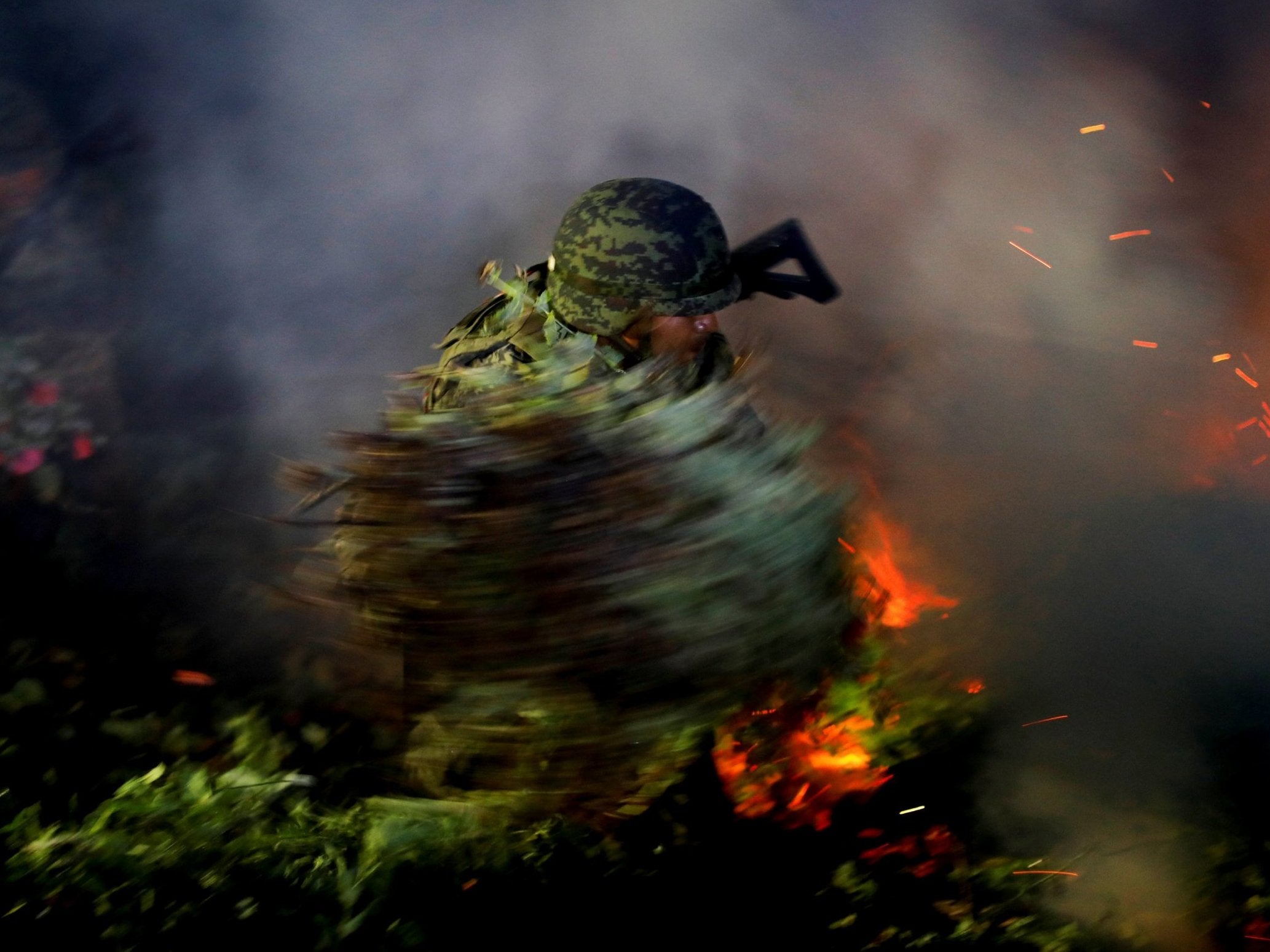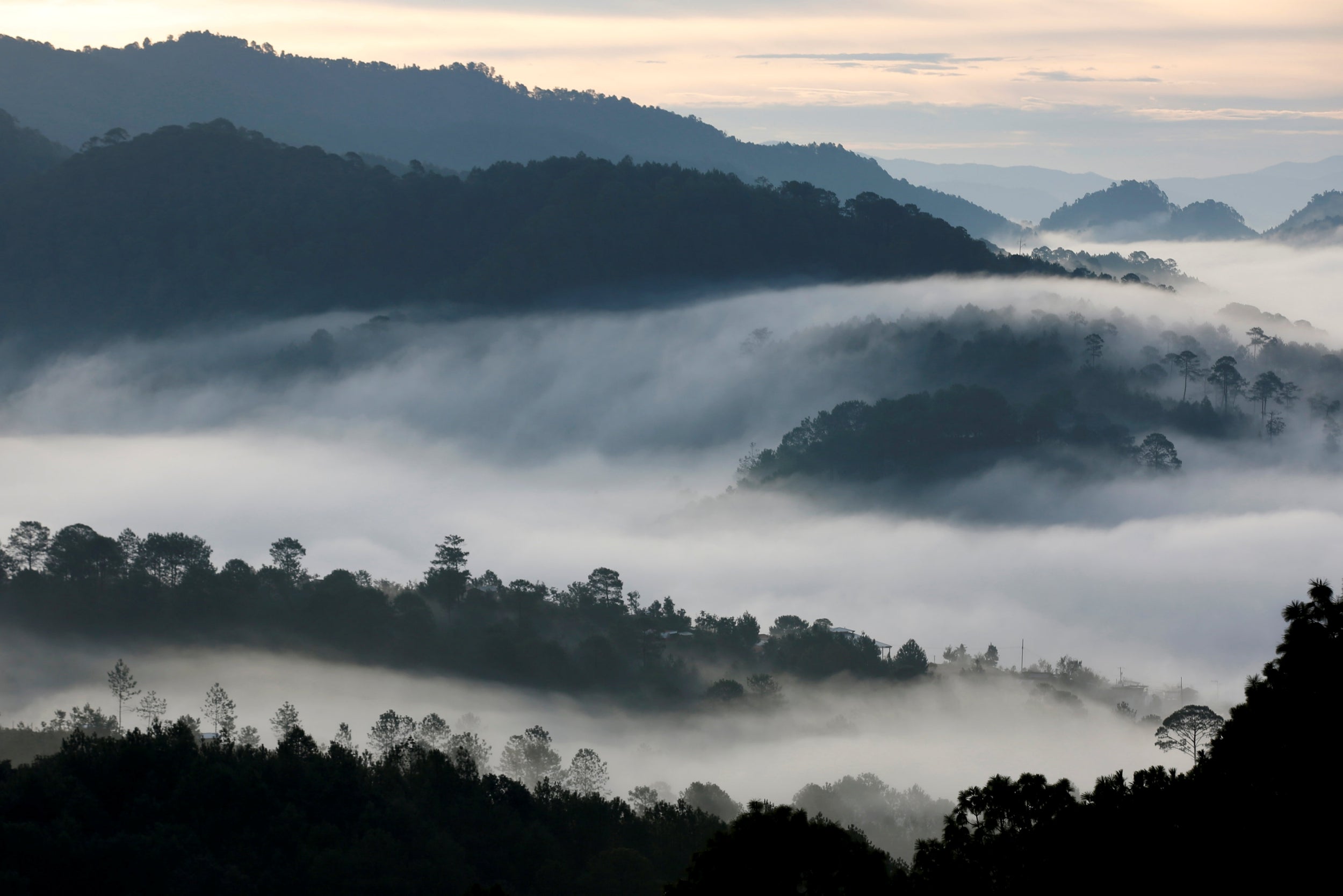As Mexico wages war on heroin, poppy farmers fight to make a living
Mexico’s top drug traffickers make billions of dollars a year supplying US addicts, but at the bottom of the supply chain, villages at the heart of illegal poppy cultivation are barely surviving

Your support helps us to tell the story
From reproductive rights to climate change to Big Tech, The Independent is on the ground when the story is developing. Whether it's investigating the financials of Elon Musk's pro-Trump PAC or producing our latest documentary, 'The A Word', which shines a light on the American women fighting for reproductive rights, we know how important it is to parse out the facts from the messaging.
At such a critical moment in US history, we need reporters on the ground. Your donation allows us to keep sending journalists to speak to both sides of the story.
The Independent is trusted by Americans across the entire political spectrum. And unlike many other quality news outlets, we choose not to lock Americans out of our reporting and analysis with paywalls. We believe quality journalism should be available to everyone, paid for by those who can afford it.
Your support makes all the difference.In the mountains of Mexico’s tropical sierra, an ever-growing expanse of pink poppy flowers has pushed prices so low for opium paste, the gummy raw ingredient of heroin, that farmer Santiago Sanchez worries how he will feed and clothe his family.
The area of Mexico that illegally farms opium poppies grew by more than a fifth last year, to an area the size of Philadelphia, according to a UN-backed study published in November. That, along with a trend towards mixing synthetic opiate fentanyl in Mexico’s tarry black heroin, has slashed what criminal gangs pay farmers like Sanchez for a kilo of opium. Now, Sanchez earns about $260 (£200) per kilo, a fifth of the average price two years ago.
While Mexico’s top drug traffickers still make billions of dollars supplying US addicts, at the bottom of the supply chain, the villagers are hardly surviving. “We can’t keep living like this,” says Sanchez, who is a local leader in the remote Mixtec Indian village of Juquila Yucucani, where hundreds of poppy farmers have seen already meagre incomes shrivel. “We can barely afford our food.”
In the United States, overdose deaths from opioids have increased almost six-fold in the past two decades, according to the Centres for Disease Control and Prevention. More than 15,000 people died of heroin overdoses in 2017 alone. Heroin from Mexico accounted for 86 per cent of the heroin found on US streets, according to the Drug Enforcement Agency’s most recent annual narcotic report.
The heart of illegal poppy cultivation is in the hills of Guerrero state, in some of the poorest mountain districts – such as Juquila Yucucani, some 800 miles south of the US-Mexican border. Guerrero is now among the country’s bloodiest states.
Despite unprecedented violence across the country, Mexican president Andres Manuel Lopez Obrador said that the government had “officially” ended its war against drug trafficking, a military-led offensive launched in 2006 that led to a surge in bloodshed as criminal groups splintered.
The government’s focus will now be on meeting the needs of marginalised communities, Lopez Obrador said, as part of a broader strategy to curb an illegal drug trade that is thriving despite the capture of high-profile kingpins like Joaquin “El Chapo” Guzman, who is on trial in New York for drug trafficking that spanned more than two decades.

Lopez Obrador has not entirely turned his back on using soldiers to tackle violence stemming from drugs – he plans to create a new militarised National Guard police force. But he is also exploring a crop substitution programme, relaxing prohibition and amnesties for low-level drug dealers and farmers. He has backed a legislative bill to legalise marijuana, and along with the former head of Mexico’s military and other members of his team, he suggested last autumn that legalising medical opium could be part of the solution.
The government appears to be backing away from that idea after opposition from the United States.
The farmers in Juquila Yucucani do not consider themselves criminals, and say current poppy eradication efforts by the army also sometimes destroy legal crops. Other than poppies, few plants take to the thin soil on Juquila Yucucani’s stony slopes. Some land is apt for planting mango or avocado trees, Sanchez says, but they would take years to mature. The narrow ribbon of twisted dirt road connecting the village to the outside world would make it almost impossible to transport bulky or delicate crops to markets, he adds.
Arturo Garcia, a farmers rights activist in the state, says the government’s new ideas would only work if a really sustained and well-funded effort was made to offer residents a way out of the drug trade. “The state must throw all its weight into this region so that it begins to alleviate the conditions that have allowed violence,” he says.
For now, several hours journey from the nearest hospitals or schools, Juquila Yucucani’s poppy farmers say they have two choices to make a living: sneak illegally into the United States, or grow poppies.
“We are not drug traffickers, we want a dignified life,” says elderly Nieves Garcia, who has grown poppies since she was a child and speaks a variant of the indigenous Mixtec language, but no Spanish. “My kids have left this place because there’s no way of getting ahead,“ she says.
Reporting by Michael O’Boyle and Frank Jack Daniel
Reuters
Join our commenting forum
Join thought-provoking conversations, follow other Independent readers and see their replies
Comments